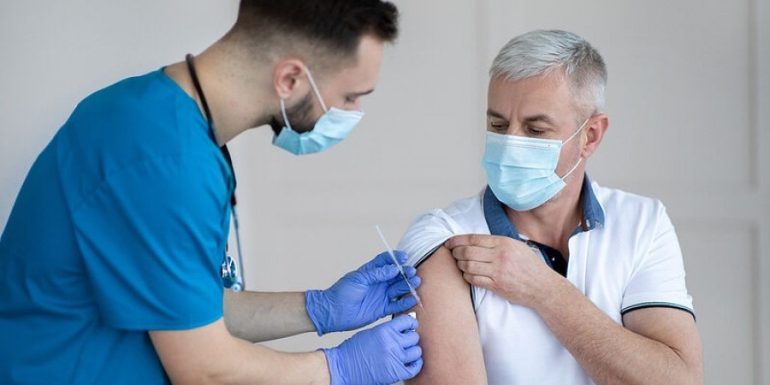More than 10 billion doses of coronavirus vaccine have now been administered, a milestone in such a short period of time since the start (late 2020-early 2021 depending on the country) of the largest vaccination program in human history, which has already vaccinated over 60% of the world's population (4,8 billion people) with at least one dose of any of the approximately 20 existing vaccines.
However, scientists warn that on the one hand there are significant inequalities in access to vaccines (only 5,5% of people in poor countries have taken two doses, while in all of Africa only 16% have taken at least one dose) and on the other hand they find it very difficult to model the future of the pandemic Covid-19 and predict when it will end. However, they consider it more likely that Omicron will not be the last variant that will concern humanity, although the next one is expected to be even milder, without, however, one being able to put one's hand in the fire for it.
The emergence of the even more contagious B.2 variant of Omicron (also known as Omicron 2), the different composition and dynamics of the population from country to country, the different vaccination strategies between countries, the different speeds and inequalities in vaccination programs and consequently the different levels of immunity between continents and within continents, the ambiguity about the pathogenicity of Omicron and its degree of immunodeficiency, all make it difficult to make reliable predictions from scientific models, according to Nature.
Already, before the appearance of Omicron 2, the original Omicron (ie the hitherto dominant sub-variant of BA.1) had impressed everyone with its tremendous speed of spread and the very large number of infections. Although the World Health Organization (WHO) and some scientists have estimated that these huge numbers of -usually mild- Omicron cases could signal the end of the pandemic, as levels of natural immunity combined with vaccination will rise dramatically. other scientists are more cautious and warn that the situation remains volatile and difficult to model, and therefore predict.
"It moves so fast that it gives us very little time to prepare any kind of response. "Decisions have to be made in a state of great uncertainty," said Dr Graham Medley, a specialist in infectious disease models at the London School of Hygiene and Tropical Medicine.
The numbers of Omicron infections - even before Omicron 2- can double in less than two days, much faster than previous variants. "We have not seen such a speed before, which means that even with vaccines we can not find a solution to all this. "Even if we vaccinate everyone, it will take two weeks for the vaccine to work and by then we will already be in trouble," said Christina Peitzel, a health data analyst at University College London (UCL).
Although vaccines continue to provide significant (not absolute) protection against serious illness, hospitalization and death, she says, "there is an impression that none of the vaccines will offer lasting protection against this infection ". "I do not think vaccines are the way this pandemic will end," agrees British virologist Julian Tang.
Then how will the pandemic come to an end? Not with Omicron, several researchers predict. "This will not be the last variant and the next one will have its own characteristics," said Dr. Medley.
Given that the SARS-CoV-2 coronavirus is unlikely to become extinct, the prevailing view is that Covid-19 will remain an endemic disease, but endemicity - that is, "living with the virus" without restrictive measures - is a rather vague concept that means different things to different people. As a result, it is difficult to model (predict) accurately, as even the best models find it difficult to make predictions beyond a few weeks. Also, endemicity prediction inevitably involves an estimate of how many deaths from Covid-19 societies will be willing to tolerate in the future as "normal" (as more or less happens to flu victims every year).
According to epidemiologist-epidemiologist Mark Woolhaus of the University of Edinburgh, Covid-19 it will only become truly endemic when most adults are protected from a serious infection because they will have been exposed to the coronavirus many times as children and thus have developed significant physical immunity. This is likely to take decades and means that many older people today who have not been exposed to the virus in their childhood will remain vulnerable and may need ongoing vaccinations.
In addition, there is no guarantee that the next variant after Omicron will be milder. However, most scientists hope that it will be, as this seems to have happened with the successive variants of the coronavirus so far.
Source: ΑΠΕ- ΜΠΕ
